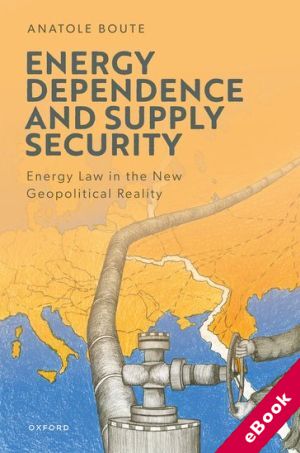
The device(s) you use to access the eBook content must be authorized with an Adobe ID before you download the product otherwise it will fail to register correctly.
For further information see https://www.wildy.com/ebook-formats
Once the order is confirmed an automated e-mail will be sent to you to allow you to download the eBook.
All eBooks are supplied firm sale and cannot be returned. If you believe there is a fault with your eBook then contact us on ebooks@wildy.com and we will help in resolving the issue. This does not affect your statutory rights.
Russia's 2022 invasion of Ukraine administered an unprecedented shock to the European and global energy markets, triggering emergency interventions and market reforms to limit the impact of the crisis on energy prices and supply security. More fundamentally, the supply shock sparked a profound reappraisal of foreign supply and infrastructure dependencies (e.g. on China), leading states to adopt new legal initiatives to strengthen the resilience of their clean energy supply chains. Energy geopolitics and supply security are now firmly back at the centre of global energy policy, and in this new geopolitical reality, we critically need to reassess the role of energy law in the creation - and avoidance - of dangerous energy dependencies.
Using the 2022 energy crisis as core example, Energy Dependence and Supply Security offers a legal analysis of energy trade and investment as a tool of geopolitical power, an issue seldom considered outside of economic statecraft and energy geopolitics. Anatole Boute's timely analysis illustrates the paradox of energy law and security: legal instruments of energy security have helped create the supply and infrastructure dependencies that allowed for the weaponization of energy. The book examines the legal responses adopted by the European Union to the impact of the Russian energy shock, reflecting on strategies to avoid similar disruptions in the clean energy industry. In return, it proposes innovative supply security reforms that would allow dependencies to be managed, while still preserving the international collaboration that is needed to accelerate the transition to clean, affordable, and secure energy systems.